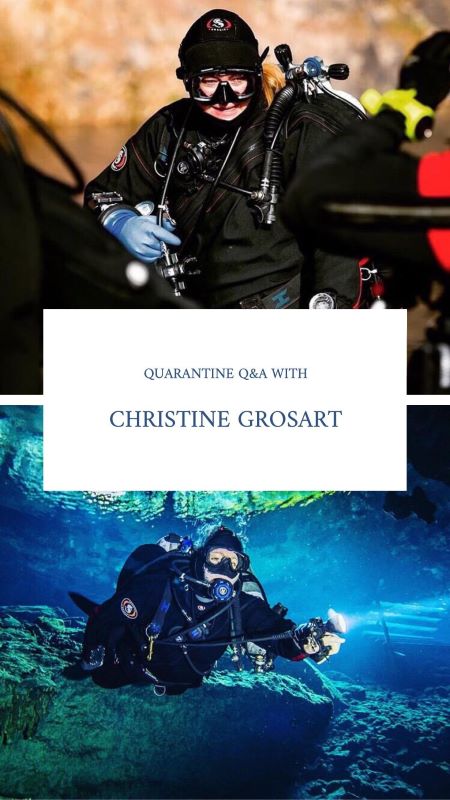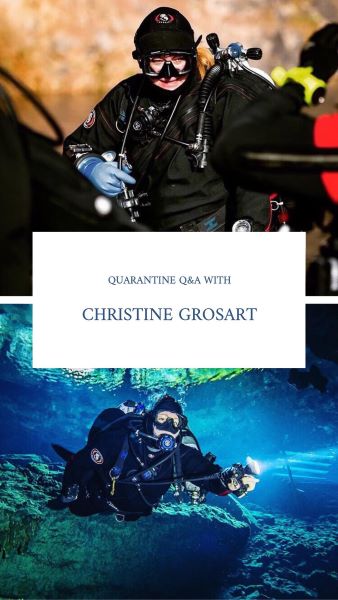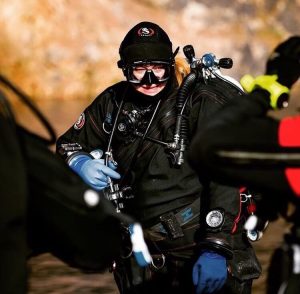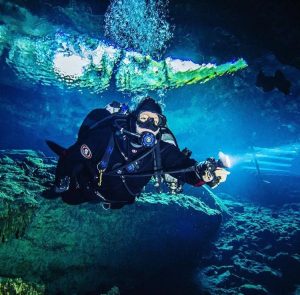Q: What is the most challenging part of your job you face today?
A: As a medic and as a paramedic you can pretty much guess that COVID-19 is preying on our minds. We’re all out in the North Sea trying to keep your gas and your fuel and power going. Just this minute we are finished up on an oil rig and are heading next to a wind farm, we’ve got divers in saturation at the moment, so they’re on their decompression, they’re going to be getting off the boat in the next 24 hours, and we’re then heading out on an ROV job to a wind farm to do some inspections and ROV survey there. The most challenging part for me as a medic is keeping everybody healthy and well, on a boat offshore, in the middle of nowhere. We’re going to be out there for 3 or 4 weeks maybe. We have good medical provisions and we have really good facilities. I have my own hospital here, which is quite cool. But it’s testing times for everybody, especially as we have crew changes often, which means healthy people going off and unknown people coming on. So that’s the biggest thing, making sure everyone is fit and well. The last thing we want is people getting sick, nevermind with COVID-19, so obviously that’s a big thing.
Q: What are some of the challenges you have faced?
A: The biggest challenge for me is the remote working, you’ve only got what you’ve got and there’s only one medic. I think that the biggest worry is, what if something happens to me? There’s a few people who would give it a go! But yeah we only have one medic, so I’m on my own out here.
Q: Has working with the NHS helped you deal with challenging conditions?
A: It kind of does in a few ways, an interesting thing that a few of my friends say, who work in the ambulance station back home, is ‘it’s just you out there! How are you going to cope with hundreds and hundreds of people?’ And I say ‘well yes I’ve got hundreds and hundreds of people, but they are not all patients. They’re working people and they’re well. You have hundreds and hundreds of patients. When I’m working a nightshift on a car, a Rapid Response Vehicle back home on my own in Somerset, sometimes you’re the only available resource and you potentially have hundreds and hundreds of patients. So actually being offshore can sometimes be a little bit luckier.
Q: What made you decide to go from an amateur jockey/horse trainer to paramedic?
A: That’s kind of a weird one and happened as a result of a friend of mine. I was working in horseracing because horses were my main passion. I was getting involved with caving and started hanging out with some cave divers, carrying some of their bottles and that kind of stuff. I realised that if you’re going to be a caver you need some money, and working on a horse racing wage doesn’t really help in terms of finances, right? So yeah you get to live where you work and you get to make your passion your job but it doesn’t fund anything else. I wanted to get involved with cave diving, I wanted to do it myself, so I figured I would need a career change. My friend then said ‘why don’t you join the ambulance service? It’s a better way and you get more time off.’ I’d never had anything to do with anything medical at all, so I did some volunteering at a hospital in Swindon in the evenings and I just did some preparation and some homework and it just went from there really. I trained as a technician and then I trained as a paramedic and that’s what got me out here, offshore. So, what I would say to people is don’t be scared of something you don’t know, or something that you don’t know you want to do. Just go and research it, go find out as much as you can just go for it.
Thank you very much to Christine for such an interesting insight into her life as an offshore medic. If you would like to find out more about her, visit her website:
https://www.wetwelliescaving.com/about-christine?fbclid=IwAR0nsRGaMbzhEfb7HLzGP0ZTsvPMjc-tJqrV1VoxoUuB5yQwf_F4ParNheY
Please also check out the original video that this transcript was taken from:
https://www.facebook.com/diversagainstcorona/videos/618958248688399/






